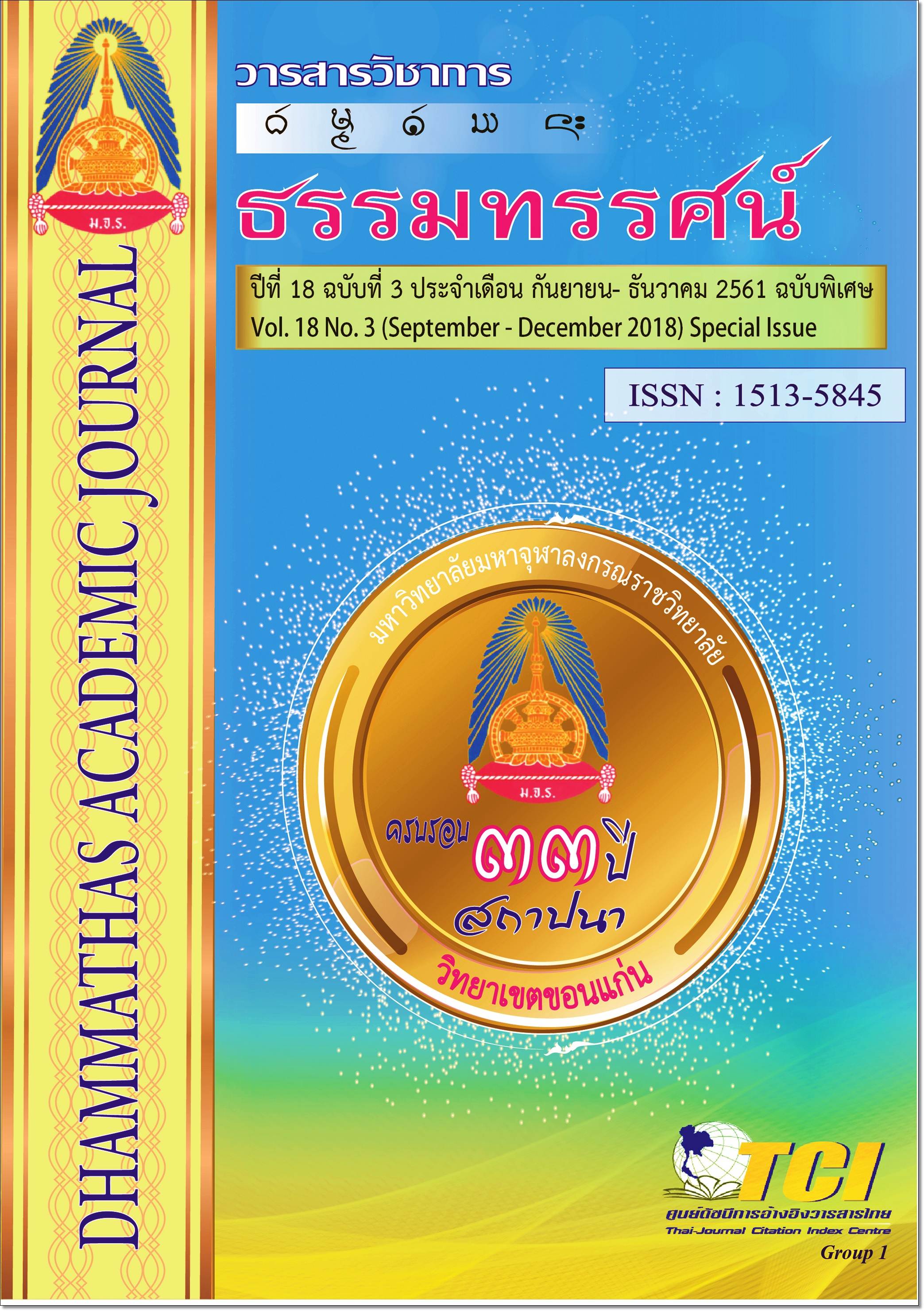Synthesis of Human Genetics Knowledge in Accordance with Principles of Theravada Buddhism and Modern Sciences for its Integration in Diseases Treatment
Main Article Content
Abstract
According to the Theravada Buddhism and modern scientific principles, the knowledge about human genetic inheritance is different in learning. In Theravada Buddhism, the principles of truth and theories follow ‘kamma’ (fate or effect from cause). It identifies human heredity. But in science, the significant causes emphasize matters that human inherits from their parents and ancestors. The process of genetic inheritancecould interestingly use for disease treatment by following the integrating Buddhist principles. This topic has never been studied before. Thus, this thesis collected information from Tripiṭaka, documents, books and researches in both Buddhism and science. Then, they were analyzed and synthesized for the following objectives: 1) to study Theravada Buddhism and modern scientific approaches related to human genetic, 2) to investigate the causes and interactions effecting human genetic identification and integrate the body of knowledge for disease treatments, 3) to apply the synthetic knowledge about human genetic according to Theravada Buddhism and modern scientific principles for integrating disease treatments.
According to Theravada Buddhism, the genetic inheritance has been caused by kamma. It is the main key to determine genetic characters caused by continuing of human actions during one’s life time. In Buddhism, when human dies, the spirit still functions due to the kamma. By the cause of kamma, the human spirit carries on the past knowledge to the next life. According to the rule of kamma, it is the cause and effect for the spirit to succeed knowledge and rebirth as a new human life when sperm fertilizes with egg. It is the genetic inheritance of an incarnation in the human world.How are the intelligence and appearances (skin, face etc.) of this human?. The kamma will be decoded to identify them. These include one’s parents and birth place. In modern science, genetic inheritance is related to the fertilization of sperm and egg to create human matter. Genetic characters are inherited from parents and ancestors. Genes, chromosomes, DNA and RNA have functions to decode genetic heredity and carry on their genetic characters. This research used the principles of human’s genetic succession of Theravada Buddhism to analytically compare with the modern scientific principles, then, synthesized them to form a newly integrated knowledge to use for disease treatments. The results from this research showed that the interaction process between Buddhist chanting and breathing meditation (anāpānasati) could cure sicknesses. When the status of ‘pīti’ (joy, overwhelming delight) happens, it will send signals to stimulate RNA. It is the bio-electromagnetic frequencies formed by the breathing meditation and chanting. It will affect the genetic decoding process because a new protein will be created and physiologically affected the abnormal cells in human body. This will regain the body balance and boost the naturally curing system in human body to confront and cure sickness.
Therefore, the synthetic study of human genetic by Theravada Buddhism and modern scientific principles for integrating disease treatments is a new research that has yet been studied. Its knowledge could effectively cure sicknesses.
